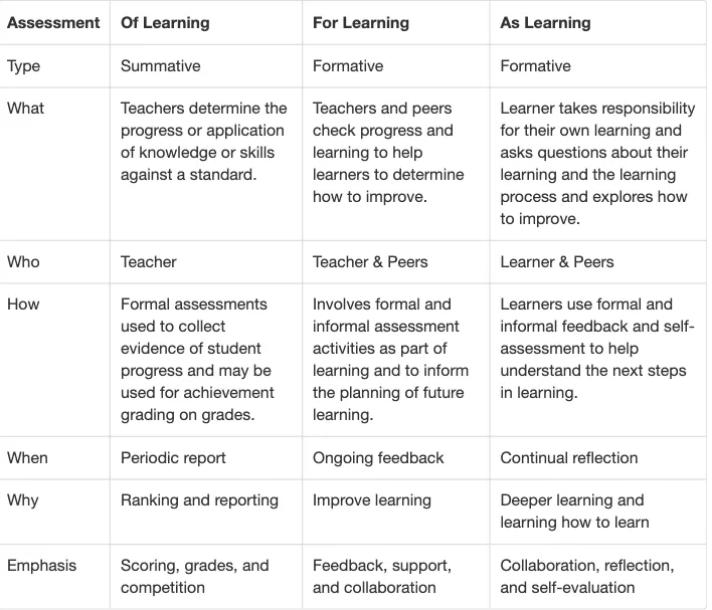As I reflect on my learning throughout this course, I have realized that my understanding of assessment and motivation has drastically evolved! The course has provided me with valuable insights into the complexities of assessment and motivation and has highlighted the importance of not just evaluating students’ final outcomes but also understanding their learning processes and motivations. Below is a summary of the key concepts that I believe will shape my approach to assessment as I continue my teaching career:
- Assessment of, for, and as Learning – Lorna Earl
Lorna Earl’s framework of assessment of, for, and as learning has been instrumental in reshaping my understanding of assessment. Earl emphasizes the need to recognize that assessment serves multiple purposes:
- Assessment of learning is the traditional method, typically summative, in which students’ final performances or achievements are evaluated.
- Assessment for learning focuses on providing formative feedback during the learning process, guiding students to improve and adjust their understanding before the final assessment.
- Assessment as learning involves students reflecting on and evaluating their own learning, giving them agency in the assessment process.
This framework has reminded me that assessment should not be a one-time event at the end of a unit, but a continuous process that supports student growth, encourages reflection, and enhances the learning experience.
- Formative Assessment vs. Summative Assessment
A central theme of the course has been the distinction between formative and summative assessments.
Formative assessments are ongoing, informal check-ins that provide valuable data on student progress and understanding. These assessments allow teachers to adjust instruction and offer feedback while learning is still occurring. Formative assessment also allows the opportunity for learning to be ongoing and scaffolded. It allows the opportunity for correction and revision to occur.
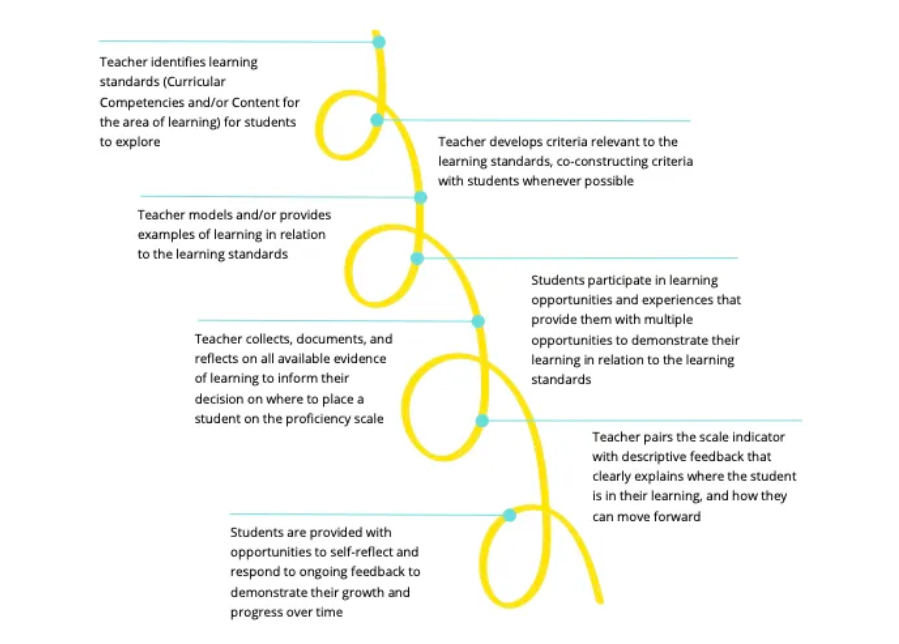
Summative assessments, on the other hand, typically occur at the end of a unit or learning cycle and serve to evaluate students’ overall achievement.
This distinction has deepened my understanding of the role assessments play throughout the learning process. I now recognize the importance of formative assessments in fostering student growth, as they allow for timely intervention and support. Summative assessments should serve to summarize the learning that has already occurred rather than be the sole measure of student success.
- Fixed Mindset vs. Growth Mindset
The concept of fixed versus growth mindsets had a profound influence on my thinking about assessment and on the language I use in the classroom.
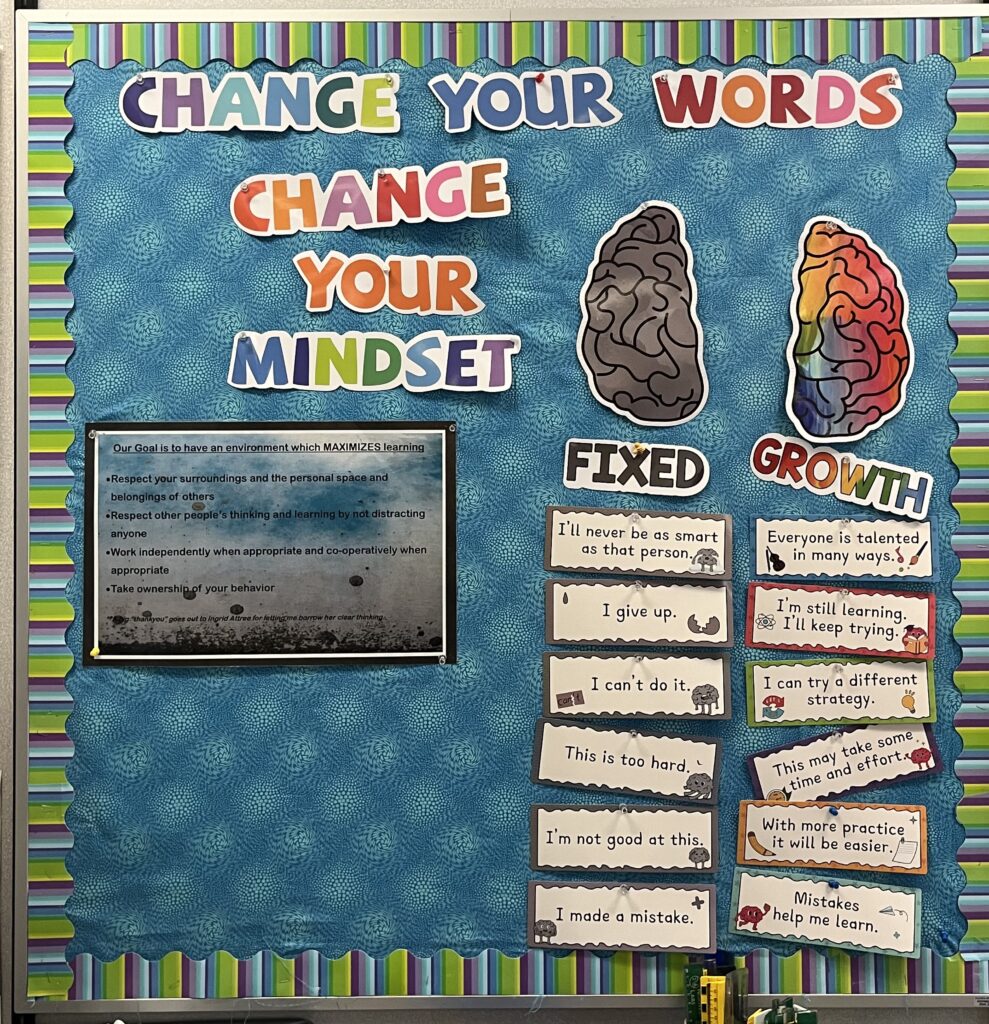
- A fixed mindset assumes that intelligence and abilities are static and cannot be significantly changed.
- A growth mindset articulates that intelligence and abilities can be developed through effort, perseverance, and learning from mistakes.
Understanding the relationship between mindset and assessment is crucial. When students possess a growth mindset, they are more likely to embrace challenges, take risks, and use feedback constructively. As an educator, it is essential to cultivate a classroom environment that promotes growth and sees assessment as an opportunity for development, not just as a judgment of current abilities!
- Un-colonizing Assessment: Focusing on Formative Assessment
One of the most important realizations from this course is the need to un-colonize assessment practices. Traditional assessment models have often been rooted in standardized, one-size-fits-all approaches that may not take into account the diverse needs of students, particularly those from marginalized backgrounds. By emphasizing formative assessments, we, as educators, can create a more flexible and culturally relevant approach to evaluating student learning. This shift prioritizes understanding the unique learning needs of each student and encourages ongoing dialogue between students and teachers.
An essential part of this process is recognizing the value of Indigenous ways of knowing and the 4 R’s: Respect, Relevance, Reciprocity, and Responsibility. These principles can guide us in designing assessments that are more culturally sensitive and tha that are reflective of students’ lived experiences, and inclusive of diverse perspectives.
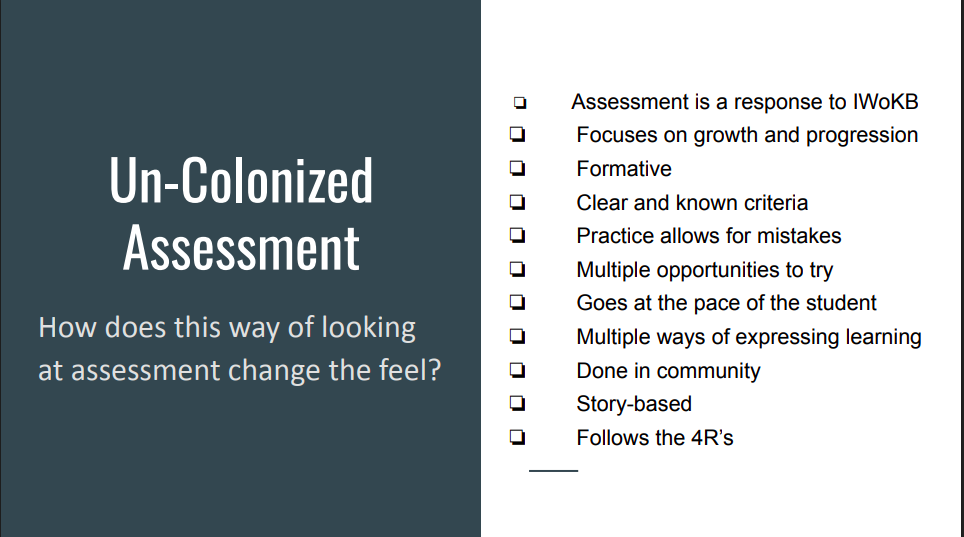
- Standards-Based Grading – Rick Wormeli
Rick Wormeli’s perspective on Standards-Based Grading System has been another notable point in my learning. Wormelli advocates for assessments that focus on proficiency, assessing whether students meet specific learning standards rather than using traditional grading systems. In a standards-based system, the emphasis is placed on mastery of key concepts, and assessments are aligned directly with the learning objectives.
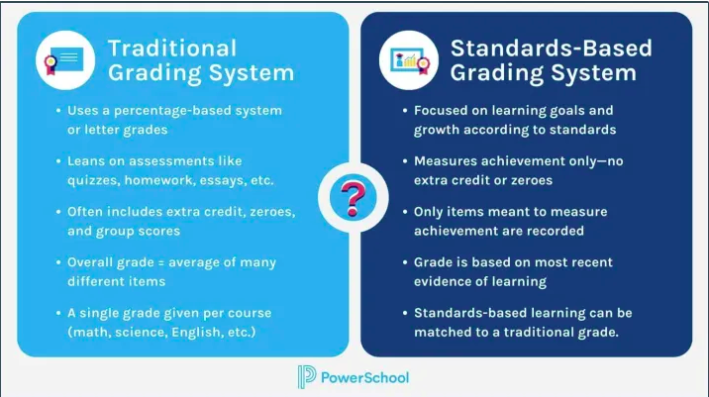
This approach challenges the traditional grading model and encourages teachers to assess students based on demonstrated understanding rather than compliance or completion. It also provides clearer feedback (formative) to students, as they can see exactly where they stand in relation to specific standards. This gives them a more transparent view of their progress.
